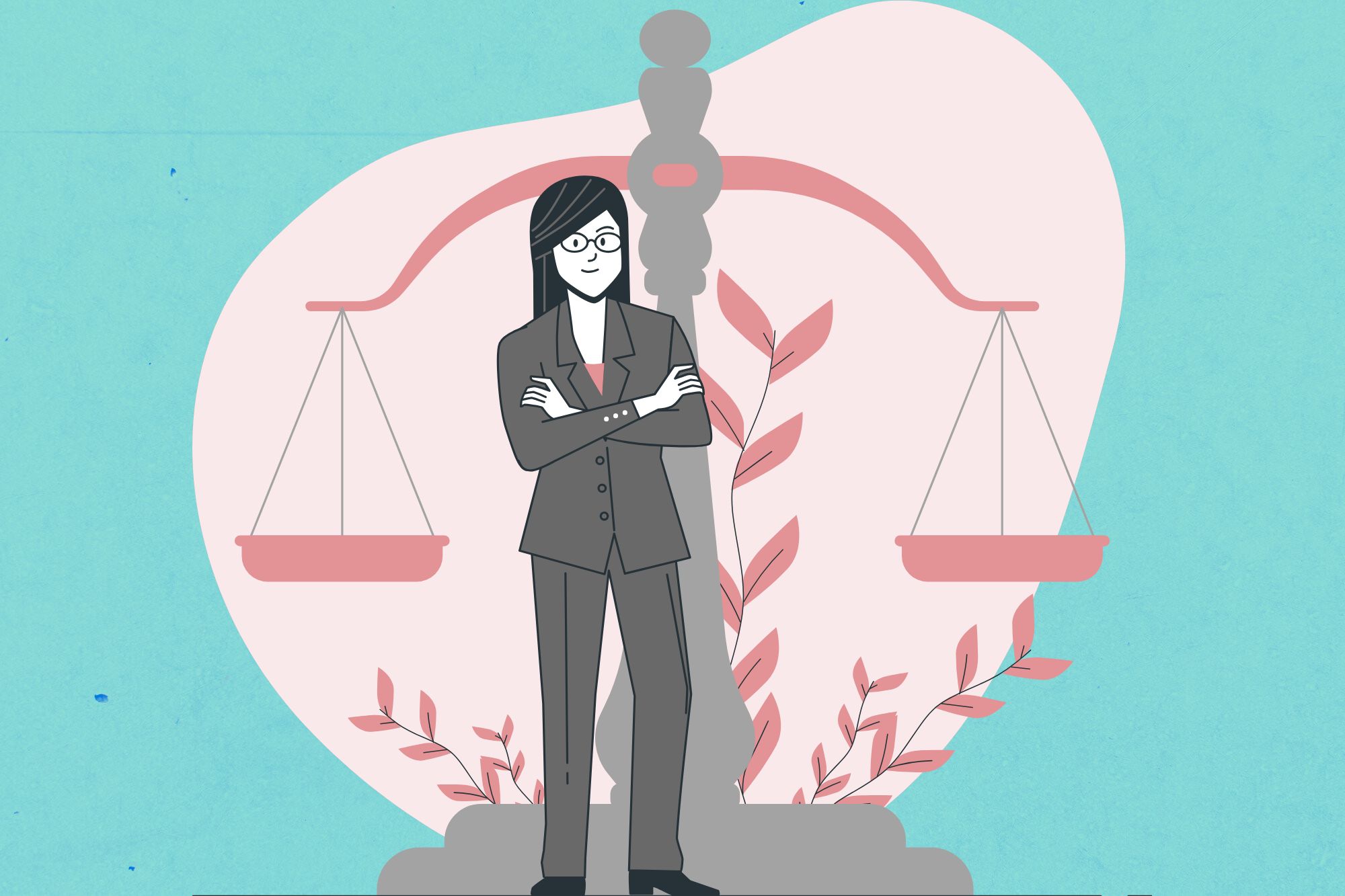To become a barrister, you need to work as an advocate representing individual clients in courts of law. They also give expert legal advice to their clients and prepare legal documents. To become a barrister, you are very important to our justice system as they help to ensure that justice is done and clients’ rights are protected.
What Are the Main Types of Barristers?
Role and Key Responsibilities
Criminal Barristers: Criminal barristers deal with the legal representation of persons accused of committing crimes. Criminal barristers prepare court cases, present the evidence identifying the guilt or innocence of the suspect, and plead the case in criminal courts either for the defendant or for the prosecution.
Civil Barristers: Civil barristers are advocates who focus their practices on non-criminal matters, including contracts, property disputes and personal injury claims act on behalf of clients before civil courts and tribunals, and give legal advice and often draft documents as well.
Family Law Barristers: A family law barrister is a lawyer who specialises in family law. They deal with legal issues concerning family units, including divorce and child custody. They advise and represent family law clients in court.
Commercial Barristers: Commercial barristers concentrate on the legal problems that arise in the commercial sector, such as disagreements regarding contracts, mergers and acquisitions, and corporate governance. They appear on behalf of their clients in parallel actions in the commercial courts and in arbitrations.
What Does a Barrister Do?
Representing Clients in Court
To become a barrister, you stand up and speak on behalf of clients in court, presenting evidence and cross-examining witnesses to make expert legal arguments.
Providing Specialist Legal Advice
To become a barrister, you advise acting solicitors (and the company’s leadership and employees) on legal issues including their human rights, to ensure that they are receiving fair play From the perspective of the person needing to navigate the system, who is typically a client, the court’s functions are to resolve disputes and bless deals. The system functions if both of these are accomplished, and it seeks to penalise anyone who games the system to decide cases in their favour. The prosecutor’s primary objective is to present factual evidence of criminal wrongdoing. If they’re successful, the person who committed the crime is punished by the sentence calculated based on the rules – ie, the scale of gravity of the offence about the society’s needs.
Drafting Legal Documents
To become a barrister, you prepare legal documents, for example, pleadings, statements of cases, or legal opinions, in a way that is logical, accurate and persuasive.
Negotiating Settlements
To become a barrister, you negotiate settlements on behalf of clients who hope to resolve disputes amicably and efficiently outside of court.

Conducting Legal Research and Preparing Cases
To become a barrister, you carry out research into the legal issues in the case to prepare their allegations and defences and writes comprehensive briefs and strategies that are shared with the client, solicitor and the court.
Collaborating with Solicitors and Other Legal Professionals
To become a barrister, you need to coordinate their practice extensively with solicitors and paralegals, as well as other members of the legal profession.
Average Barrister Salary
Salary Ranges Based on Experience and Location
The market for barristers’ salaries is characterised by wide dispersion, with starting salaries varying from £12,000–50,000, depending on the type of work and chambers, and with far more experienced barristers earning six-figure sums. Many, however, are self-employed.
Comparison of Salaries in Different Regions and Types of Barristers
Salaries can vary regionally too, with barristers in London earning more. To become a barristers, your undertaking work in commercial or high-profile cases will tend to earn more than those working in public or family law.
Factors Influencing Barrister Salaries
Several factors can influence barrister salaries:
- Experience: The more experience barristers gain, the higher their salaries. More experienced barristers are normally paid more.
- Practice Area: The area of law one works within can have some bearing on earnings – commercial and corporate law tend to pay better than public or family law, for instance.
- Locations: Geographic location plays a vital role in the salary level. No matter whether the workers would move to the city or not, salaries in the city are higher, because of the high requirement of the legal service.
- Reputation and Client Base: To become a barrister with a reputation and stable client base can command higher fees and greater earnings.

Barrister Skills
Technical Skills
- Legal Knowledge and Expertise: Sound knowledge and understanding of the law and legal principles applicable to the field of practice of the barrister: practising as a barrister demands a deep and specialised knowledge of how the law applies in different factual scenarios.
- Testimonial Skills: Cases must be presented well to clients and the court. The use of language and recommendations must persuade judges and juries. Advocacy Skills: Classes must teach how to argue in court. Financial Skills: Understand financial statements along with foundation work and other income streams.
Soft Skills
- Communication: Strong communication skills are essential for presenting arguments, cross-examining witnesses, and negotiating settlements.
- Analytical Thinking: Readers of any kind of text benefit from analytical thinking. Some texts express rules in ways that can lead readers astray. It takes analytical thinking to weed those out. Your ability to put the individual elements together goes a long way in avoiding that problem.
- Negotiation skills: Barristers and counsellors must develop excellent negotiation skills to settle disputes in favour of their clients.
- Time Management: Efficient time management is necessary for handling multiple cases and meeting deadlines.
Barrister Tips
Keeping Your Law Skills Up-To-Date: The world of law is constantly evolving, and with new laws and additional case law coming in, it’s important to stay up to date on all of these.
Networking through Professional Organizations and Chambers: Membership in relevant professional associations and chambers can open doors for new opportunities through networking and resource acquisition.

Gaining Experience Through Pupillage and Mini-Pupillage: An experience by pupillage and mini pupillage to develop the best insight and experience to help acquire exposure and reputation.
Continuously Improving Advocacy and Legal Skills: Regularly practicing and refining advocacy and legal skills helps barristers succeed in their careers.
Barrister Requirements
Educational Requirements
Law degree (LLB) or Graduate Diploma in Law (GDL): The age of rudimentary plightsuffering for the sake of the cause is over Or perhaps the latter, with a non-law degree and the Graduate Diploma in Law (GDL).
Completing the Bar Professional Training Course (BPTC) or Bar Course
It is compulsory to take the Bar Professional Training Course (BPTC) or Bar Course after completing the academic part to pick up the skills and knowledge needed to pursue a career as a barrister.
Certification Requirements
Called to the Bar of an Inn of Court: All those who wish to become barristers have to be called to the Bar of one of the four Inns of Court (Inner Temple, Middle Temple, Gray’s Inn or Lincoln’s Inn).
Experience Requirements
It is better to find at an early age the centre of one’s natural interests and gratify those than to follow the common custom of studying indifferently a little of everything, and barely touching the outskirts of many things.
How to Become a Barrister
Completing Relevant Education
- Law Degree (LLB) or Equivalent: To become a barrister, you will need to complete a law degree (LLB) or equivalent qualification first.
- Having completed the Bar Professional Training Course (BPTC) or Bar Course: The BPTC or Bar Course can be undertaken to acquire the necessary practical skills and substantive knowledge.

Gaining Practical Experience
- Mini-Pupillage and Pupillage in Chambers: Roll up your sleeves and get some hands-on experience to develop your skills and your reputation.
Obtaining Certification
- Called to the Bar of an Inn of Court by being judged ready to practise: Upon completion of education and pupillage, be eligible to be called to the Bar of an Inn of Court.
- Completing Pupillage Successfully: Complete the full pupillage period successfully to qualify as a barrister.
Continuing Professional Development
- Workshops, Seminars, Webinars: Engage in continuous professional development through various training opportunities.
- Advanced Training and Specializations: Pursue advanced training and specialisations to further develop your expertise.
Networking
- Membership Of Professional Bodies: Join Professional Bodies such as The Bar Council to network and develop contacts in my profession and keep abreast of developments.
- Go To Legal Events And Conferences: Be sure to attend legal events and conferences. This might include attending traditional, national or state bar meetings or it could be as simple as being an active member of a local ‘meetup’ online group. A great place to start when going to these events is to network with people at the events. That way, if you meet other people also looking to get into tech, you may develop a mutually beneficial relationship.
Get Qualified as a Barrister
Paralegal Certification, Paralegal Training Online
Frequently Asked Questions (FAQ)
1. Why should you become a Barrister?
Working as a barrister is a very dynamic and influential career. It gives you a chance to argue in court, to stand up to be counted and strive for justice as well as advise people. The profession is respected, employees are paid well and have job security. On top of that, the work is very satisfying as you have an impact.
2. Is Being a Barrister a Good Career Choice for You?
It’s a great job – if you love the law and its substance, if you enjoy speaking up for people, and if you’re analytical and good with words. It suits those who enjoy detail, thrive under pressure, and can cope with complexity. And it’s a great career if you’re a quick learner and a sparky all-rounder who likes working in a challenging, fast-moving and intellectually rigorous environment: this sort of work is ultimately deeply satisfying to those who care about justice.
3. Barrister Salaries
Salaries for barristers are bound to be practically impossible to generalise about because salaries depend on so many different factors: experience; the area of practice; and whether you’re working in London or in the ‘regions’ (which is what solicitors who leave London and go to the provinces are called, even in the already provincial Birmingham). A recent student guide to going to the Bar () says that ‘junior barristers start on between £12,000 and £50,000 a year depending on the area of work and chambers’ and that ‘top brass can make £100,000 plus’. Salaries also vary regionally; they are paid more money in London than outside of the capital, and the area of law varies: ‘commercial law’ is often by far the best-paid area of practice, with public or family law trailing behind.
4. Which Qualifications Can Help with a Career as a Barrister?
You need a law degree (LLB) or the equivalent qualification, pass the Bar Professional Training Course (BPTC) or Bar Course, be called to the Bar by an Inn of Court, and then benefit from learning specific advocacy skills, such as becoming an effective public speaker and learning the factors that influence a judge’s decision. You need legal research training, too. Lastly, many barristers are specialists in certain unlikely areas, such as patent law.
5. Do I Need to Be an Experienced Lawyer to Get Started?
You don’t have to be a qualified lawyer to start as a barrister, but you do need to have some practical experience through temporary positions in mini-pupillage and pupillage within chambers, to acquire the necessary skills and form your reputation. Many people hoping to become barristers have court or similarly related experience through internships in chambers and leading a legal clinic.
6. Barrister Career Outlook
The chances of being a barrister in the future look good – the profession will always have work and top-rate pay. With the field of law developing new branches of law every year, barristers are needed as much as they ever were. The legal system needs new lawyers, which should be enough to ease a career at the bar. You are mostly guaranteed a job, making good money and a chance to climb the ranks into another specialised area of the legal world.
7. Barrister Hierarchy and Progressing Within the Role
In the workplace, a barrister’s career path can be illustrated as described below.
A barrister’s career path begins with junior barrister/pupils. After passing the junior barrister/pupil level, one can be promoted to another intermediate job. The career path can be developed to a junior counsel/senior counsel. In these jobs, a barrister has besuited learning opportunities, enhanced skills and gained the advanced certification which approves to master the job. If one keeps following the path, they can be appointed as Queen’s Counsel (QC) or as a judge.
8. Barrister Exit Options and Opportunities
There is no shortage of exit options and options for advancement for barristers, as their skills and experience are readily transferable. Barristers can make the transition to legal consultancy, academia or public service. The very best barristers will become legal advisers to the government, law professors or even judges. It is not uncommon for successful barristers to return to university and read for higher degrees, gaining the skills to one day teach or research law in further education, finishing this most satisfying of careers with a doctorate.


